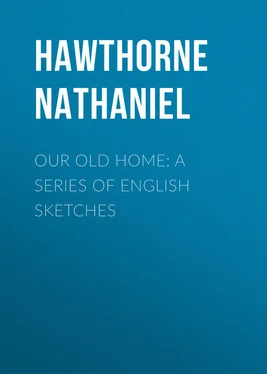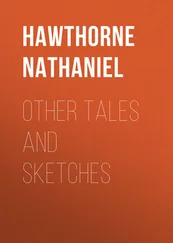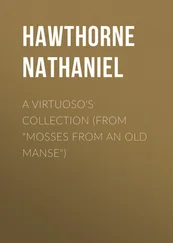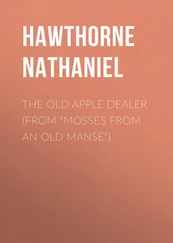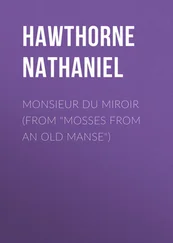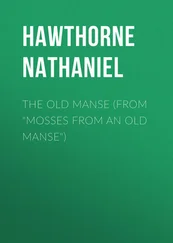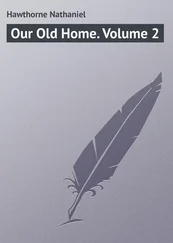Nathaniel Hawthorne - Our Old Home - A Series of English Sketches
Здесь есть возможность читать онлайн «Nathaniel Hawthorne - Our Old Home - A Series of English Sketches» — ознакомительный отрывок электронной книги совершенно бесплатно, а после прочтения отрывка купить полную версию. В некоторых случаях можно слушать аудио, скачать через торрент в формате fb2 и присутствует краткое содержание. Жанр: literature_19, foreign_antique, foreign_prose, на английском языке. Описание произведения, (предисловие) а так же отзывы посетителей доступны на портале библиотеки ЛибКат.
- Название:Our Old Home: A Series of English Sketches
- Автор:
- Жанр:
- Год:неизвестен
- ISBN:нет данных
- Рейтинг книги:4 / 5. Голосов: 1
-
Избранное:Добавить в избранное
- Отзывы:
-
Ваша оценка:
- 80
- 1
- 2
- 3
- 4
- 5
Our Old Home: A Series of English Sketches: краткое содержание, описание и аннотация
Предлагаем к чтению аннотацию, описание, краткое содержание или предисловие (зависит от того, что написал сам автор книги «Our Old Home: A Series of English Sketches»). Если вы не нашли необходимую информацию о книге — напишите в комментариях, мы постараемся отыскать её.
Our Old Home: A Series of English Sketches — читать онлайн ознакомительный отрывок
Ниже представлен текст книги, разбитый по страницам. Система сохранения места последней прочитанной страницы, позволяет с удобством читать онлайн бесплатно книгу «Our Old Home: A Series of English Sketches», без необходимости каждый раз заново искать на чём Вы остановились. Поставьте закладку, и сможете в любой момент перейти на страницу, на которой закончили чтение.
Интервал:
Закладка:
With the technical details of the business of that great Consulate (for great it then was, though now, I fear, wofully fallen off, and perhaps never to be revived in anything like its former extent), I did not much interfere. They could safely be left to the treatment of two as faithful, upright, and competent subordinates, both Englishmen, as ever a man was fortunate enough to meet with, in a line of life altogether new and strange to him. I had come over with instructions to supply both their places with Americans, but, possessing a happy faculty of knowing my own interest and the public's, I quietly kept hold of them, being little inclined to open the consular doors to a spy of the State Department or an intriguer for my own office. The venerable Vice-Consul, Mr. Pearce, had witnessed the successive arrivals of a score of newly appointed Consuls, shadowy and short-lived dignitaries, and carried his reminiscences back to the epoch of Consul Maury, who was appointed by Washington, and has acquired almost the grandeur of a mythical personage in the annals of the Consulate. The principal clerk, Mr. Wilding, who has since succeeded to the Vice-Consulship, was a man of English integrity, – not that the English are more honest than ourselves, but only there is a certain sturdy reliableness common among them, which we do not quite so invariably manifest in just these subordinate positions, – of English integrity, combined with American acuteness of intellect, quick-wittedness, and diversity of talent. It seemed an immense pity that he should wear out his life at a desk, without a step in advance from year's end to year's end, when, had it been his luck to be born on our side of the water, his bright faculties and clear probity would have insured him eminent success in whatever path he night adopt. Meanwhile, it would have been a sore mischance to me, had any better fortune on his part deprived me of Mr. Wilding's services.
A fair amount of common-sense, some acquaintance with the United States Statutes, an insight into character, a tact of management, a general knowledge of the world, and a reasonable but not too inveterately decided preference for his own will and judgment over those of interested people, – these natural attributes and moderate acquirements will enable a consul to perform many of his duties respectably, but not to dispense with a great variety of other qualifications, only attainable by long experience. Yet, I think, few consuls are so well accomplished. An appointment of whatever grade, in the diplomatic or consular service of America, is too often what the English call a "job"; that is to say, it is made on private and personal grounds, without a paramount eye to the public good or the gentleman's especial fitness for the position. It is not too much to say (of course allowing for a brilliant exception here and there), that an American never is thoroughly qualified for a foreign post, nor has time to make himself so, before the revolution of the political wheel discards him from his office. Our country wrongs itself by permitting such a system of unsuitable appointments, and, still more, of removals for no cause, just when the incumbent might be beginning to ripen into usefulness. Mere ignorance of official detail is of comparatively small moment; though it is considered indispensable, I presume, that a man in any private capacity shall be thoroughly acquainted with the machinery and operation of his business, and shall not necessarily lose his position on having attained such knowledge. But there are so many more important things to be thought of, in the qualifications of a foreign resident, that his technical dexterity or clumsiness is hardly worth mentioning.
One great part of a consul's duty, for example, should consist in building up for himself a recognized position in the society where he resides, so that his local influence might be felt in behalf of his own country, and, so far as they are compatible (as they generally are to the utmost extent), for the interests of both nations. The foreign city should know that it has a permanent inhabitant and a hearty well-wisher in him. There are many conjunctures (and one of them is now upon us) where a long-established, honored, and trusted American citizen, holding a public position under our government in such a town as Liverpool, might go far towards swaying and directing the sympathies of the inhabitants. He might throw his own weight into the balance against mischief makers; he might have set his foot on the first little spark of malignant purpose, which the next wind may blow into a national war. But we wilfully give up all advantages of this kind. The position is totally beyond the attainment of an American; there to-day, bristling all over with the porcupine quills of our Republic, and gone to-morrow, just as he is becoming sensible of the broader and more generous patriotism which might almost amalgamate with that of England, without losing an atom of its native force and flavor. In the changes that appear to await us, and some of which, at least, can hardly fail to be for good, let us hope for a reform in this matter.
For myself, as the gentle reader would spare me the trouble of saying, I was not at all the kind of man to grow into such an ideal Consul as I have here suggested. I never in my life desired to be burdened with public influence. I disliked my office from the first, and never came into any good accordance with it. Its dignity, so far as it had any, was an encumbrance; the attentions it drew upon me (such as invitations to Mayor's banquets and public celebrations of all kinds, where, to my horror, I found myself expected to stand up and speak) were – as I may say without incivility or ingratitude, because there is nothing personal in that sort of hospitality – a bore. The official business was irksome, and often painful. There was nothing pleasant about the whole affair, except the emoluments; and even those, never too bountifully reaped, were diminished by more than half in the second or third year of my incumbency. All this being true, I was quite prepared, in advance of the inauguration of Mr. Buchanan, to send in my resignation. When my successor arrived, I drew the long, delightful breath which first made me thoroughly sensible what an unnatural life I had been leading, and compelled me to admire myself for having battled with it so sturdily. The newcomer proved to be a very genial and agreeable gentleman, an F. F. V., and, as he pleasantly acknowledged, a Southern Fire Eater, – an announcement to which I responded, with similar good-humor and self-complacency, by parading my descent from an ancient line of Massachusetts Puritans. Since our brief acquaintanceship, my fire-eating friend has had ample opportunities to banquet on his favorite diet, hot and hot, in the Confederate service. For myself, as soon as I was out of office, the retrospect began to look unreal. I could scarcely believe that it was I, – that figure whom they called a Consul, – but a sort of Double Ganger, who had been permitted to assume my aspect, under which he went through his shadowy duties with a tolerable show of efficiency, while my real self had lain, as regarded my proper mode of being and acting, in a state of suspended animation.
The same sense of illusion still pursues me. There is some mistake in this matter. I have been writing about another man's consular experiences, with which, through some mysterious medium of transmitted ideas, I find myself intimately acquainted, but in which I cannot possibly have had a personal interest. Is it not a dream altogether? The figure of that poor Doctor of Divinity looks wonderfully lifelike; so do those of the Oriental adventurer with the visionary coronet above his brow, and the moonstruck visitor of the Queen, and the poor old wanderer, seeking his native country through English highways and by-ways for almost thirty years; and so would a hundred others that I might summon up with similar distinctness. But were they more than shadows? Surely, I think not. Nor are these present pages a bit of intrusive autobiography. Let not the reader wrong me by supposing it. I never should have written with half such unreserve, had it been a portion of this life congenial with my nature, which I am living now, instead of a series of incidents and characters entirely apart from my own concerns, and on which the qualities personally proper to me could have had no bearing. Almost the only real incidents, as I see them now, were the visits of a young English friend, a scholar and a literary amateur, between whom and myself there sprung up an affectionate, and, I trust, not transitory regard. He used to come and sit or stand by my fireside, talking vivaciously and eloquently with me about literature and life, his own national characteristics and mine, with such kindly endurance of the many rough republicanisms wherewith I assailed him, and such frank and amiable assertion of all sorts of English prejudices and mistakes, that I understood his countrymen infinitely the better for him, and was almost prepared to love the intensest Englishman of them all, for his sake. It would gratify my cherished remembrance of this dear friend, if I could manage, without offending him, or letting the public know it, to introduce his name upon my page. Bright was the illumination of my dusky little apartment, as often as he made his appearance there!
Читать дальшеИнтервал:
Закладка:
Похожие книги на «Our Old Home: A Series of English Sketches»
Представляем Вашему вниманию похожие книги на «Our Old Home: A Series of English Sketches» списком для выбора. Мы отобрали схожую по названию и смыслу литературу в надежде предоставить читателям больше вариантов отыскать новые, интересные, ещё непрочитанные произведения.
Обсуждение, отзывы о книге «Our Old Home: A Series of English Sketches» и просто собственные мнения читателей. Оставьте ваши комментарии, напишите, что Вы думаете о произведении, его смысле или главных героях. Укажите что конкретно понравилось, а что нет, и почему Вы так считаете.
